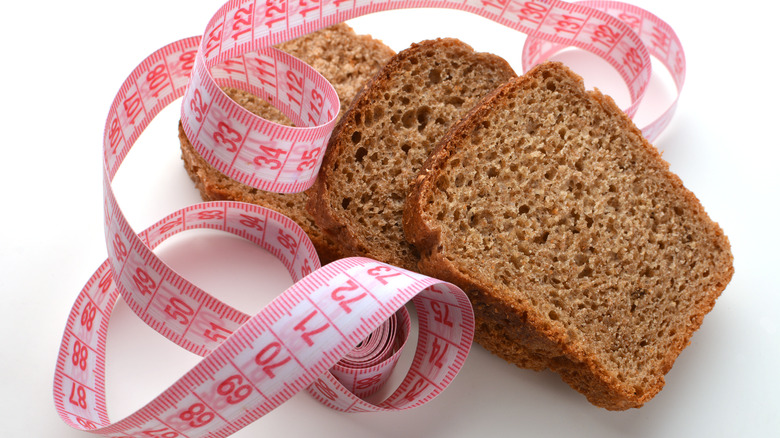Why You Might Gain Weight When You Don't Eat Enough Fiber
Ah, fiber. If the very word makes you think of bran flakes and extended stays on the toilet seat, you're probably aware that marketing efforts usually point out fiber's important role in preventing constipation. Fiber practically wears a label saying "Boring but important." But there's actually much more to fiber than just its role in keeping us regular. Getting enough fiber may help with weight loss, too.
Fiber has the potential to affect weight in a couple of subtle but crucial ways. First, as an indigestible carbohydrate, fiber absorbs water and increases in bulk as it moves through the digestive tract. That helps you feel full, which in turn makes you less likely to overeat and consume excess calories. Jinan Banna, Ph.D., R.D. told Eat This, Not That! "High-fiber foods are important to keep hunger at bay and maintain a healthy weight. Fiber provides a feeling of fullness, as it slows stomach emptying."
Getting enough fiber may help with weight loss
According to the CDC, high-fiber foods are often also low-calorie, and they take longer to chew, giving your brain and gut more time to realize that you're full. That's also good news for weight management.
As important as fiber is, most Americans still don't get enough of it. A love of fast and processed foods — which are usually low in fiber — gets in the way. Heather Bauer, R.D., founder of Bestowed.com, told SELF, "In our fast-paced world, so many people rely on on-the-go options like fast food, juices and processed, boxed snacks, but these foods have been stripped of their fiber."
Dietary fiber is found mainly in whole plant foods — whole grains like brown rice, oats, and whole grain flour, plus vegetables, fruits, legumes, nuts, and seeds (via Livestrong). Increasing the amount of these foods that we eat, while decreasing processed foods in the diet, is a positive step towards both meeting our recommended daily fiber intake, and maintaining a healthy weight.


